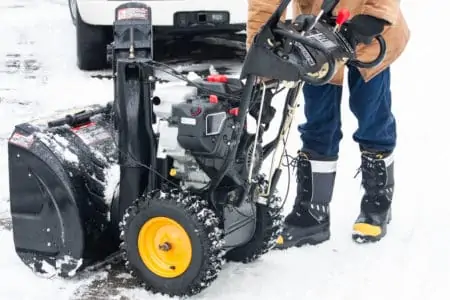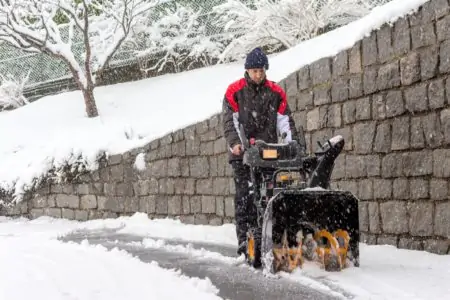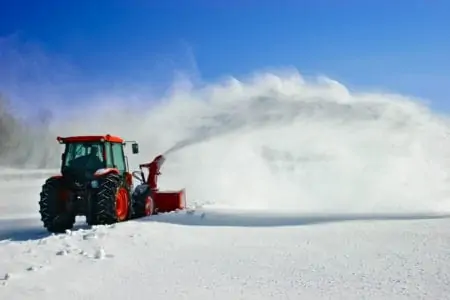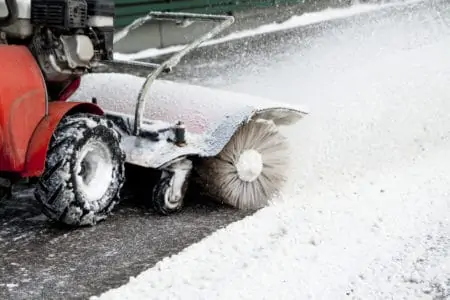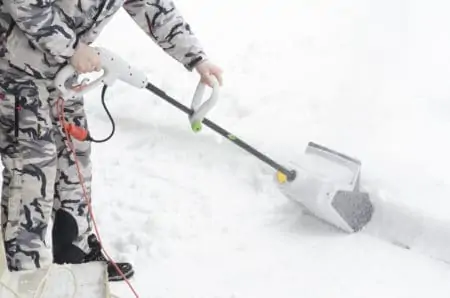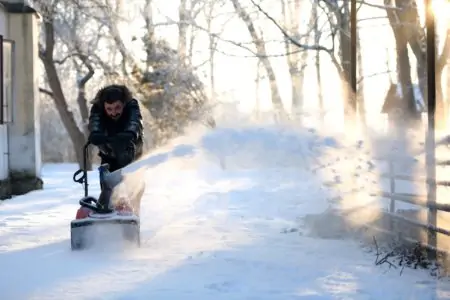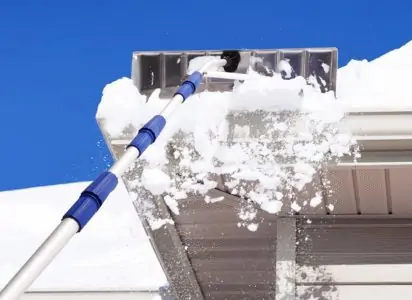That first flurry of snow sometimes catches you unaware. You rush out to get that snow blower you promised yourself last winter but never got round to it. This response is understandable if you get sporadic snow falls, but if you get a blanket of white every winter, maybe some better planning is in order.
So, when is the best time to buy a snow blower? Let’s take a look.
Key Takeaways
- Buy a snow blower in summer or early fall for the best deals and selection.
- August or September offers lower prices and more choices due to lower demand.
- Shopping in winter may result in higher prices and fewer options as demand increases.
- Compare online and retail outlets for the best prices, selection, and customer reviews.
Best Time To Buy a Snow Blower
Do you wait until the last minute to purchase your snow blower? Are you likely to get the best deal if you shop with the crowd, fighting for the last blower on the shelf?
The area where you live makes a massive difference in timing. Alaska gets snow a lot earlier than Chicago, so you will find snow blowers on sale earlier in the year.
Think of it as supply and demand. When demand is high, the retailer holds all the cards because you need that snow blower, and they know it. You are unlikely to get a better deal in this situation.
If demand is weak but supply is strong, the retailer gets nervous that they might not shift their stock, so striking a deal is more likely.
Spring
You might be tempted to try buying the snow blower in spring. It seems logical, but big stores are pretty savvy and rarely have stock at the end of a snowy season. All you end up buying is the leftover models that no one wants.
Most manufacturers make multiple products and need to allocate their production lines accordingly. While they focus on snow blowers in the late summer, their attention turns to lawnmowers as the winter fades, limiting the snow blower stock.
It’s the reason why you always see stores rotate their seasonal stock before the season ends. They take the view that people are switching attention to other things, and they need to be ahead of the curve to match demand.
So, while there may be snow still on the ground in February/March, most people have purchased their snow blower already.
Summer
August or September are the best months to strike a deal. Nobody is thinking about the cold winter, so snow blower sales will initially be on the slow side, but the shelves will be full.
If you leave it until August or September, the stores are just taking delivery of their new snow blowers and are keen to get them shifted. Think of it like this: convertible cars never sell in the winter, so when do you think the best deals can be struck? February of March, just as they are taking delivery of their new cars.
You will also get the best selection of models, giving you the option of comparing and contrasting for the best deal.
Fall
October is another great month for purchasing a snow blower because it falls just outside the start of winter when attention is turning towards the colder months. Stock levels are high, and more importantly, the selection is good.
The manufacturing period for snow blowers is short, between May to July, to ensure they have sufficient stock for the winter, and to manage production levels so they are not stuck with a surplus.
This is important because no company wants a surplus of stock, so they always keep the window of production tight, so they don’t tie up money in stock they can’t shift.
So, if you live in a state with on-off snow weather, you could find the shelves empty deep into the snow season if you leave it too late.
Winter
If you are shopping for a snow blower in the dead of winter, then you are likely to be disappointed. Either the shelves will be empty without much hope of new stock, or you are likely to be constrained by a lack of choice.
All the best models will have been snapped up. Also, when the snow starts to fall, and you rush down to the store, you are more likely to panic buy and pay over the odds for your new snow blower.
And worse than that, you might pay too much money for a make and model that is substandard, which is the opposite of “best.”
Online Vs. Retail Outlets
Online sales trends are much the same as physical retail sales. However, there are certain advantages when buying over the internet.
First, it’s far easier to compare products online because you get all the information at your fingertips, and you can streamline your search based on price bands.
Second, because the online retailers don’t have a physical presence in the retail park, they can keep costs down, hopefully passing them on to you. Many sites also offer free postage, and zero sales tax, reducing your spend further.
You also get a wider choice should your preferred model be out of stock because, on large consumer sites, you can shop the entire market. And you get to see the customer reviews based on actual experiences rather than sales talk.
However, going to a store is a shopping experience you just don’t get purchasing online. You can pick up the product, get a feel for the weight, and if it’s comfortable to hold. You can also ask questions of the sales staff and even see the blower in action with a demonstration.
It’s also easier to barter with a salesperson face to face, enabling you to strike a better deal. The downside of store shopping is it is harder to compare and contrast makes and models, and if your favorite model is out of stock, you might be limited for choice.
Stores are not like online stores, where the world of snow blowers is on display for all. Shops have limited shelf space and stockroom space, so they have to be selective about their product lines.
Online
Pros
- Greater stock selection and availability, giving you a wider choice.
- Easier to compare and contrast different makes and models.
- Free shipping and often zero sales tax, which reduces costs further.
- Search by price bands and other specific criteria.
- Read accurate customer reviews.
Cons
- Unable to try before you buy.
- Unable to haggle with a salesperson when you want to strike a deal.
- Not able to see the snow blower in action via a demonstration.
Retail Outlet
Pros
- Get the opportunity to try before you buy.
- You can haggle with the salesperson to drive a better deal.
- You can get a feel for the weight and how it behaves.
- Ask questions of the salesperson and get a better understanding of the product.
Cons
- Limited stock selection reduces your choices.
- More difficult to compare and contrast products.
- Unable to read customer reviews.
FAQs
Worst Time To Buy a Snow Blower
So, we’ve looked at the best time to buy a snow blower, but when is the worst possible time to purchase your new device?
As we said at the beginning of the article, it all comes down to supply and demand. When demand is high, the retailers hold all the power. They know you want that snow blower, and they will sell it to you, but not at a discount.
Why would they slash the price when they have a line of people desperate to buy that same model?
When is the worst time to buy a snow blower? In the dead of winter or when the first snow starts to fall. If you find yourself racing to the store in sheer desperation, you are not going to land the best deal. Period!
